Alumni will go on to successful careers as:
- Actuarial analyst
- Actuarial consultant
- Actuarial manager
- Chief actuary
- Pricing actuary
- Product development actuary
- Risk analyst
- Risk manager
- Underwriting actuary
- Valuation actuary
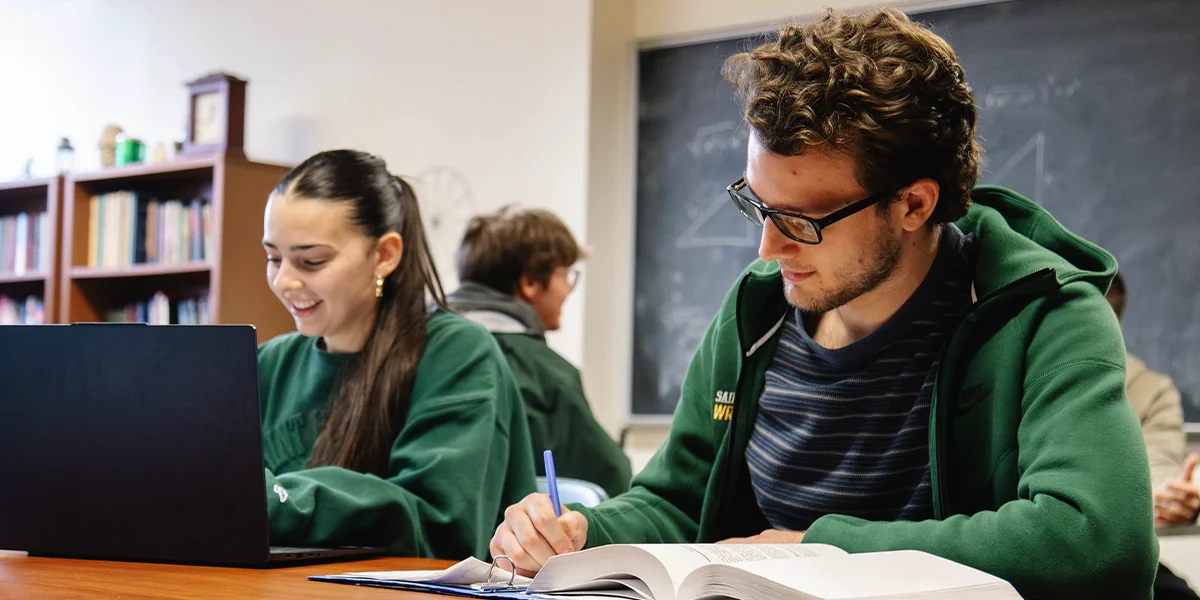
Actuarial science is a blend of rigorous mathematics with an emphasis on probability and statistics along with coursework in economics, accounting, and finance. These skills are used to assess and manage risk in areas such as insurance, pensions, investments, and other financial realms. This is an attractive field of study because of the high-paying jobs available to students who demonstrate their aptitude to actuarial science by passing the Society of Actuaries introductory exams. Our program works with the McKenna Business School to ensure students learn about economics, accounting, investments, and financial mathematics from faculty trained in these areas.
Actuarial science offers a unique blend of intellectual challenge and meaningful impact. By predicting future events, managing risks, and ensuring financial security, actuaries play a crucial role in protecting individuals and businesses. This field not only provides a rewarding career with high demand and competitive salaries but also allows professionals to make a positive difference in people's lives.
For more information about this program contact Jennifer White.
 “I've found SVC's Math/Actuarial Science program to be rewarding at every step. The diverse curriculum - spanning math, finance, statistics, and programming - has provided me with the foundations necessary to prepare for and pass Exams P and FM within my first three years. Just as valuable have been the faculty, who remain supportive and deeply invested in my success.”
“I've found SVC's Math/Actuarial Science program to be rewarding at every step. The diverse curriculum - spanning math, finance, statistics, and programming - has provided me with the foundations necessary to prepare for and pass Exams P and FM within my first three years. Just as valuable have been the faculty, who remain supportive and deeply invested in my success.”
Ben Yeskey C’26
Phone:
800-782-5549
Ext. 2500
Email:
admission@stvincent.edu
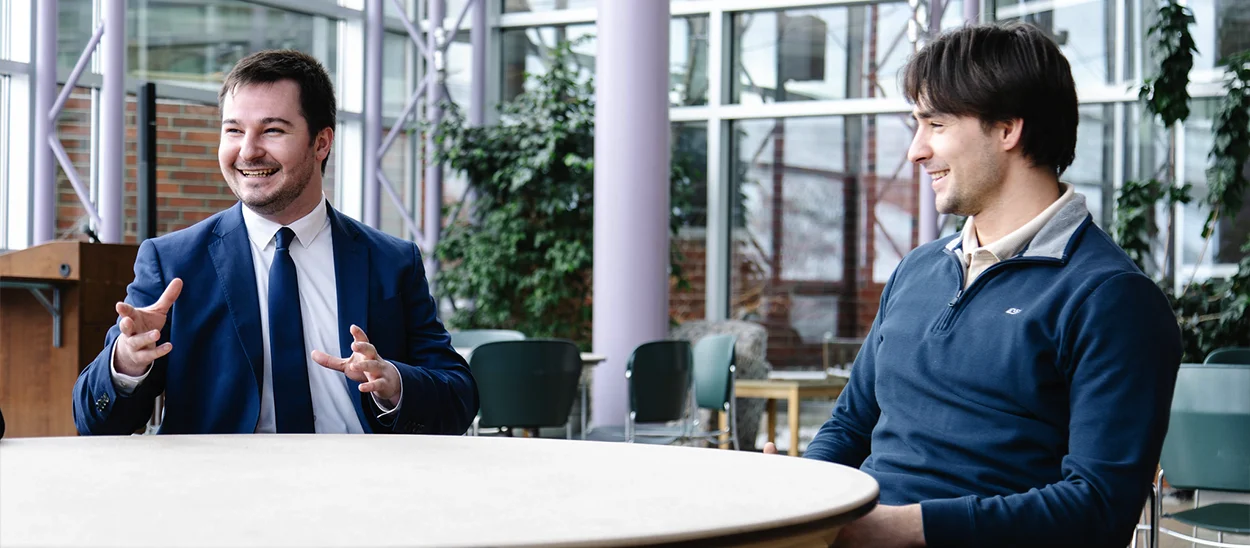
Employment of actuaries is projected to grow more than 20% in the next decade, with about 2,200 openings annually. In 2023, actuaries earned salaries generally ranging from $88,000 to $164,000 according to US News and World Report. Discover a career that offers financial rewards and fulfills your life purpose by helping others.
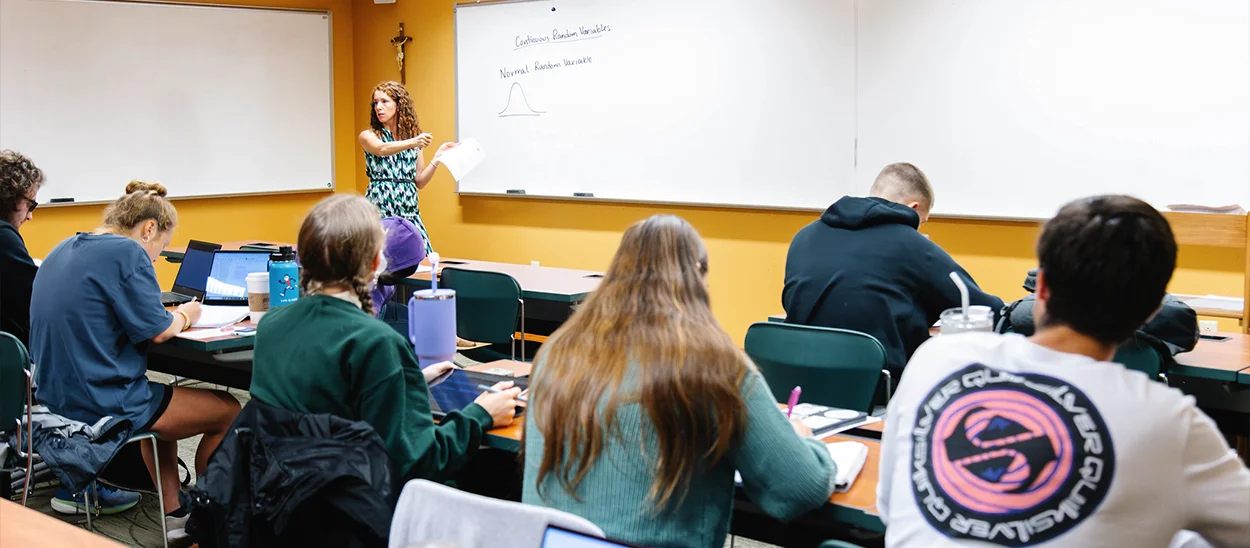
Our actuarial science program offers carefully designed coursework to prepare students for the Society of Actuaries Probability (P) and Financial Mathematics (FM) exams. By focusing on key areas like probability, statistics, economics, accounting, and finance, we ensure students have the essential skills and knowledge to excel in these critical exams and succeed in the actuarial profession. Feel confident that SVC is preparing you for the next step in your career path.
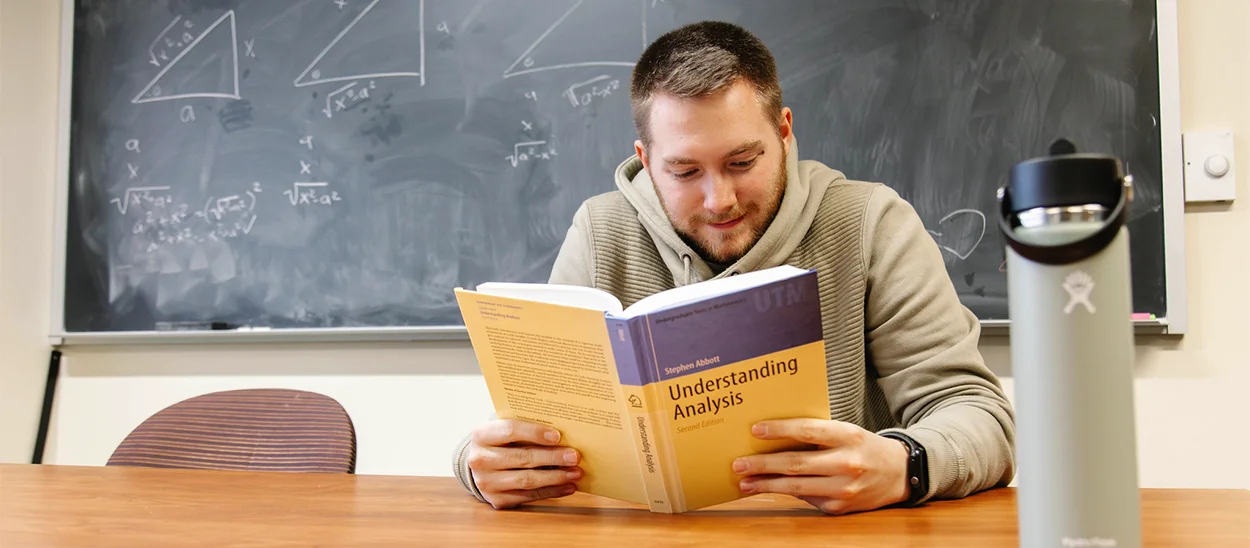
Actuarial science students are encouraged to enhance their skills with a minor or second major such as data science, making Saint Vincent an ideal choice for those pursuing actuarial careers in an increasingly data-driven world. Gain a competitive edge with a second major or minor in a related field, complemented by a liberal arts and sciences education that provides a well-rounded perspective and exceptional communication skills.

All accounting, finance, and economics courses designed for the actuarial science degree are part of our ACBSP-accredited business programs. Learn more about the McKenna School of Business, Economics, and Government. Stand out in the job market with accredited business courses that enhance your skills and boost your career prospects. Join our program and gain the competitive edge you need!
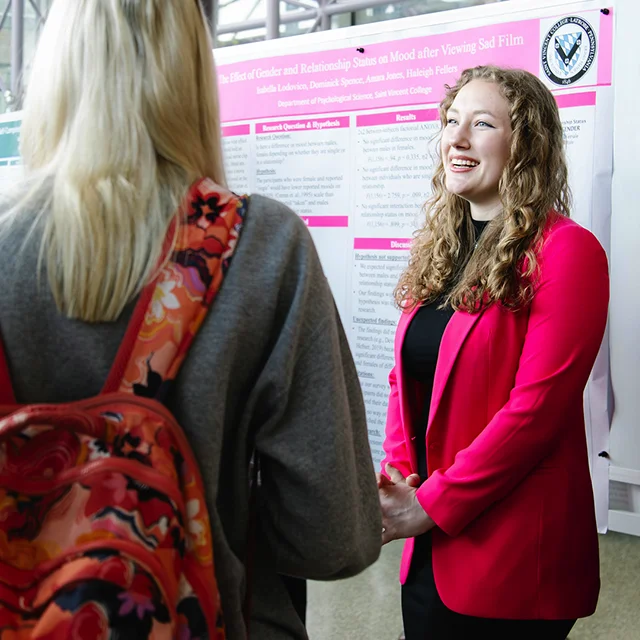
The mathematics/actuarial science major is part of The Herbert W. Boyer School of Natural Sciences, Mathematics, and Computing and is supported by our core curriculum, where students delve into diverse academic subjects at both foundational and advanced levels to explore how different disciplines connect, fostering deeper self-understanding and proficiency in their chosen field of study. Blending mathematical skills with knowledge about economics, accounting, and finance, the mathematics/actuarial science program is designed to give students a strong mathematical foundation for logical problem-solving paired with business-specific courses that give students the knowledge needed to be successful.
Major Requirements (59 Credits)
Two MA courses at 400 level (4 credits each)
Accounting and Finance courses
One Statistics I course:
One of these courses:
Four credits of Natural Science and Lab:
Probability and Statistics I and II
This two-course sequence is designed to help students in preparation for Society of Actuaries Probability (P) Exam. It covers a range of probability topics including independence, conditional probability, Bernoulli trials, and Bayes Theorem, random variables, discrete and continuous distributions, expectance and variance. The first semester focuses on discrete probabilities and the second semester concentrates on continuous random variables.
Accounting Courses and Investments Courses
To prepare students for the Financial Mathematics (FM) Exam, students take several accounting and investments courses. Students examine accounting principles, the accounting cycle, and analysis of financial statements. Students learn about the investment environment, the time value of money, and general principles of investment, alternative assets in the portfolio, hedge funds, and more.

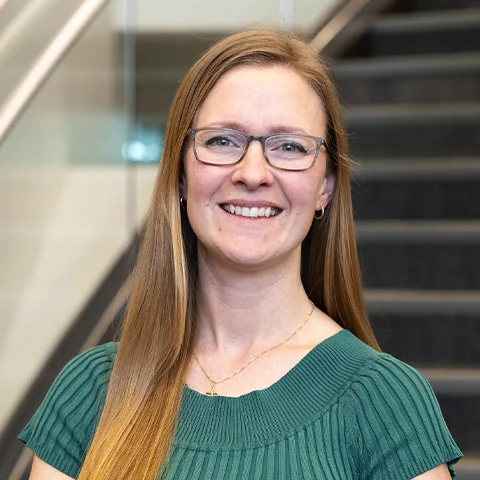
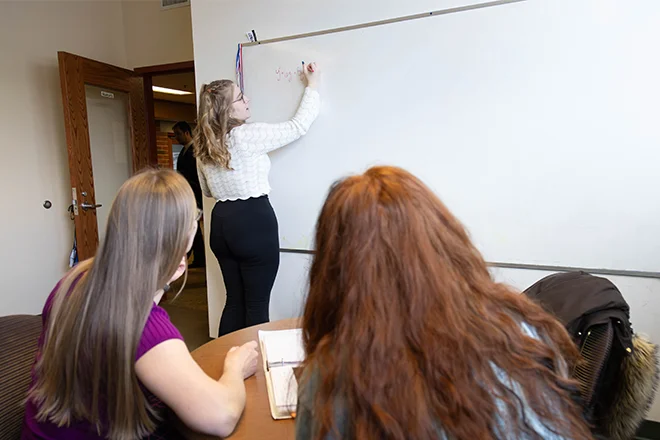
The CLP is a weekly study hour for specific math courses where students exchange ideas with knowledgeable upperclassmen and classmates in a relaxed and enjoyable setting, while attaining better insight and skill at solving problems covered in course content.
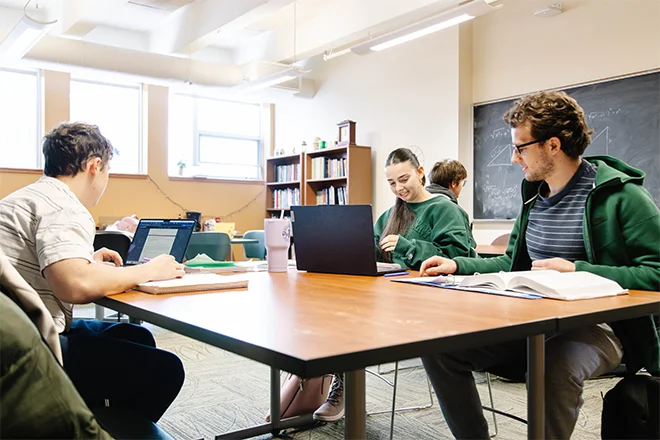
The math tutoring room is staffed by student tutors throughout the week. Tutors in accounting meet with students regularly in Aurelius as part of the McKenna Business School. This free service is available to all students seeking help with their math courses. It's also a fantastic work-study opportunity for upperclassmen, allowing them to gain valuable experience while supporting their peers.
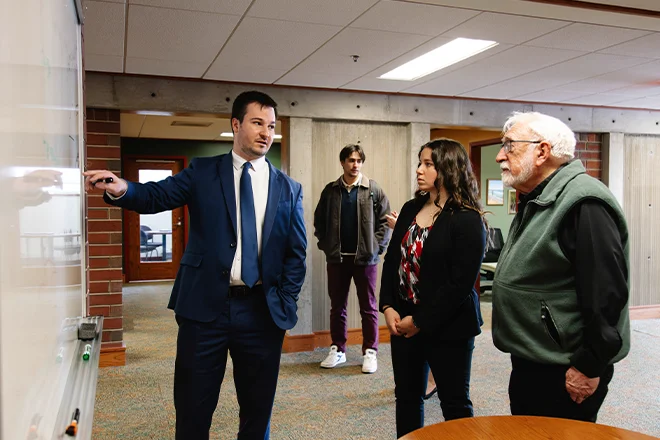
Located in the state-of-the-art Sis and Herman Dupré Science Pavilion, our math department offers a stimulating and collaborative environment. Sharing a floor with the computer science department and with the physics department just downstairs, students have ample opportunities for interdisciplinary collaboration. Our space features faculty offices, cozy sitting areas for informal study sessions, and a spacious tutoring room staffed by upperclassmen.
Students earning a degree in mathematics/actuarial science will be able to:
Phone:
800-782-5549
Ext. 2500
Email:
admission@stvincent.edu